On 6 February, the Video Online Learning and Training (VOLT) project partners and other stakeholders gathered in Brussels, Belgium to celebrate the project’s successful completion, outcomes and its relevance within the wider context of inclusive education and digital skills for people with disabilities´.
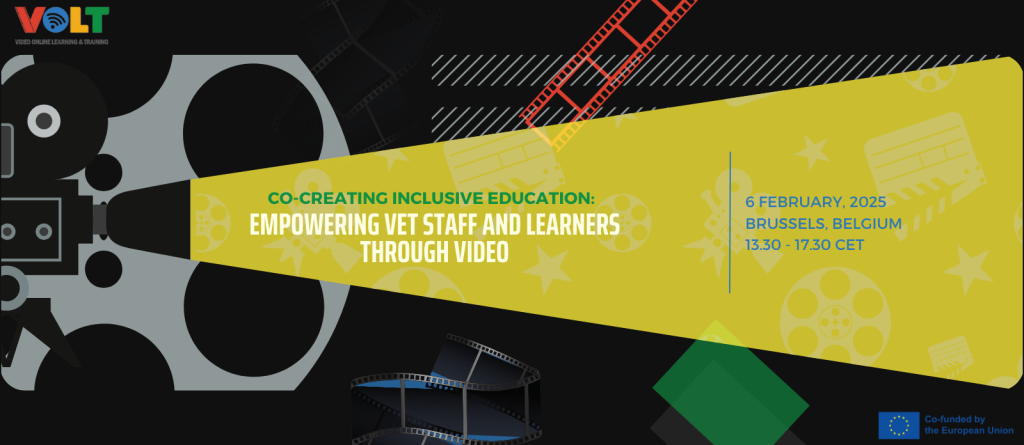
The conference, titled “Co-Creating Inclusive Education: Empowering VET Staff and Learners Through Video’ kicked off with a presentation on the Digital Skills, Accommodation and Technological Assistance for Employment (DATA) research project, conducted by the European Disability Forum (EDF) with the support of Google.org. It focused on three key areas – digital skills, assistive technologies and reasonable accommodation for people with disabilities.
Roberta Lulli, EDF Project Officer, emphasised the crucial role of digital skills in promoting inclusion, accessibility, and independence of people with disabilities. The research identified significant barriers – such as insufficient training opportunities – that hinder the development of digital skills, which in turn restricts employment opportunities.

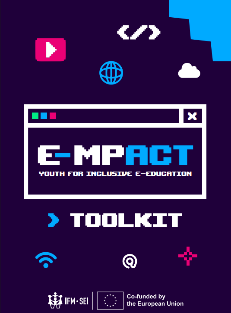
Next, Max Homan, Project Coordinator of IFM-SEI (EU Youth Network) introduced E-MPACT: Youth for Inclusive E-ducation Project. The project addresses the education inequalities highlighted during the COVID-19 pandemic, with a particular focus on enhancing digital skills in marginalised communities. Over its course, project partners developed a range of impactful resources, including an e-learning toolkit, research papers, and a platform designed to promote inclusivity in education through youth collaboration and international solidarity.
The shared perspectives of the DATA and E-MPACT projects reinforced the core value of VOLT – using the power of digital inclusion, co-creation and accessibility to transform education and employment opportunities for people with disabilities. Vaia Arsenopoulou, Head of Research and Development of Theotokos Foundation (Greece) and VOLT project coordinator, shared that the VOLT project was created exactly because of:
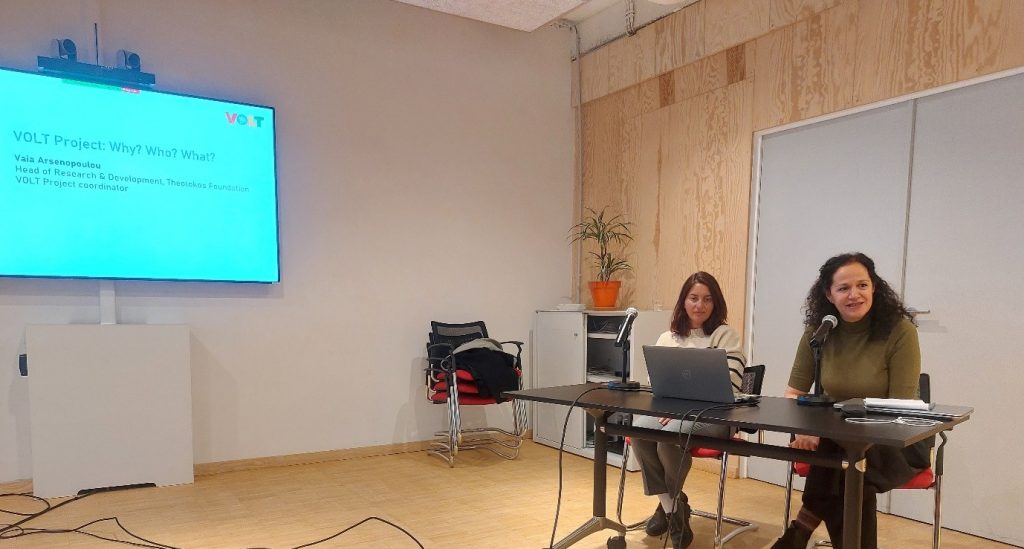
- The need for inclusive and accessible digital learning opportunities for people who prefer to learn using audio-visual resources;
- The fundamental value of involving people with disabilities in the co-creation of training content and tools to ensure they are accessible, meaningful, and empowering;
- The need for training in digital skills and resources for staff and learners in VET services for people with disabilities;
- Videos are a powerful digital tool for online and distance learning.
In response to the above needs, VOLT project partners build a learning platform that empowers VET staff and learners across Europe to become digital collaborators and innovators. The platform hosts a collection of videos created by service users with the support of their trainers, and is a space to share, watch and get inspired. The different content categories include educational and skills development videos, raising awareness videos and videos that showcase learners’ achievements.
To guide the process of co-creating videos, VOLT project partners also developed two valuable resources: the Staff Guide for Vocational Education and Training personnel, and the Toolkit for Learners. During the event, Chryssi Kotretsou from Theotokos Foundation, explained that the resources were developed using an evidence-based approach, which included a comprehensive literature review, identification of good practices and digital tools from nine organisations, and digital and video skills assessment questionnaires. The Staff Guide highlights the value of the coproduction principle; a step-by-step guide on how to create videos and effective strategies for using videos with learners to enhance engagement. The Toolkit for Learners was designed for learners with developmental, intellectual or psychosocial disabilities attending VET services, who face challenges accessing text-based learning tools and materials.
Several video testimonials, featuring learners involved in the project, were showcased during the event, demonstrating the tangible effects of VOLT. These videos not only highlighted the skills learners developed in the process, but also emphasized the importance of teamwork (co-creating) and the empowering impact of video creation for learners with disabilities.
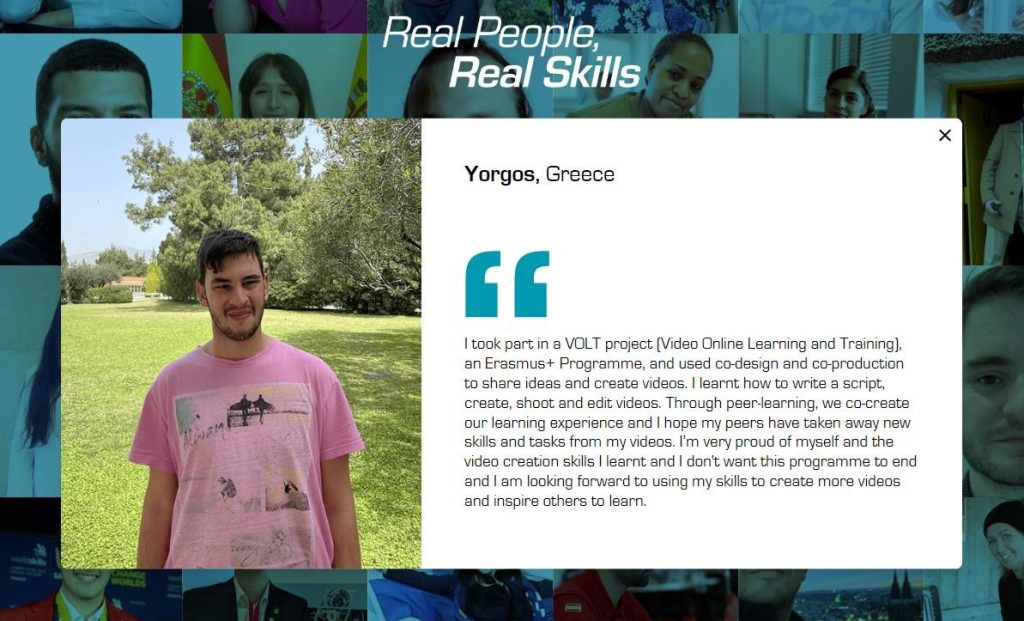
Watch the shared testimonials of learners:
- https://youtu.be/oXHVZGDJ5Os
- https://www.youtube.com/watch?v=GB6qBelZxNs
- https://www.youtube.com/watch?v=JBgxgNjiCQc
The success of the VOLT project underscores the profound potential of using videos as an inclusive learning tool, enabling people with disabilities to engage meaningfully in education and the workforce.
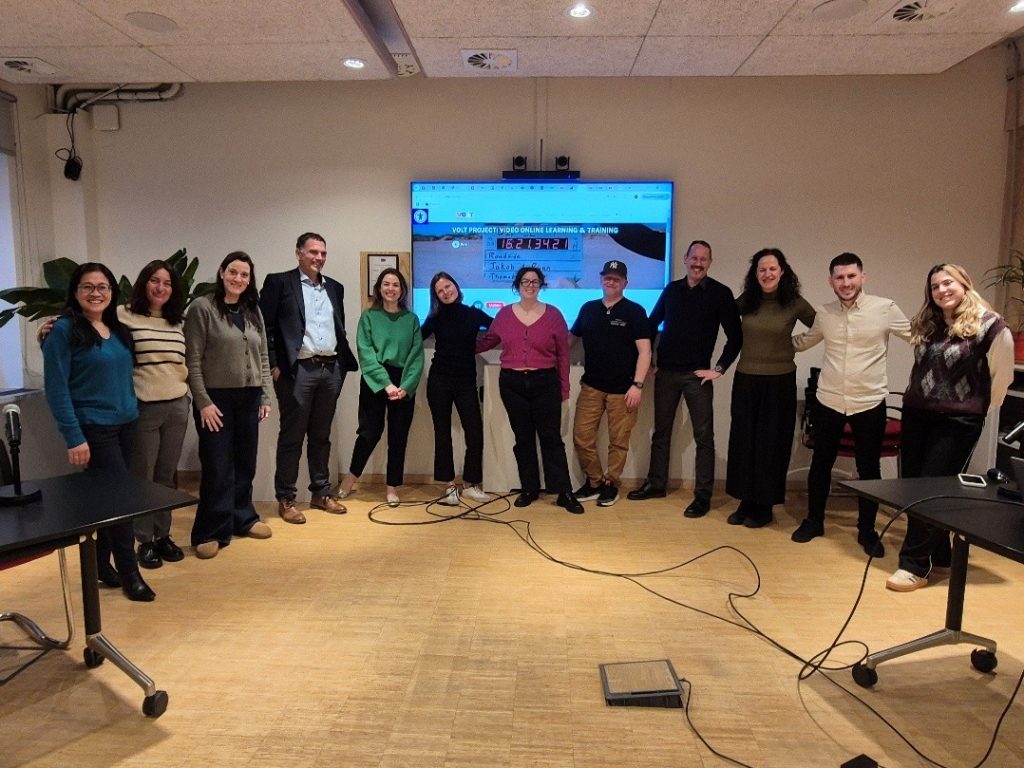
The VOLT project partners strongly encourage VET staff and learners to make use of the developed resources, continuing the momentum of digital inclusion and accessible learning.
